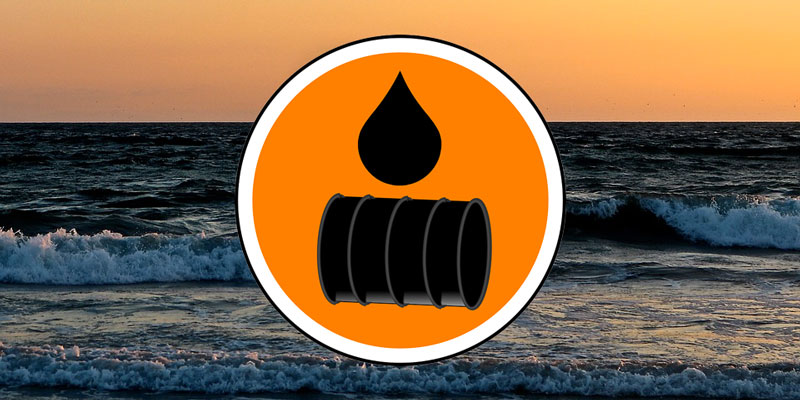Federal government lawyers say a 14-year-old leak is releasing much more oil each day into the Gulf of Mexico than officials previously claimed, and it may be getting worse.
A Friday court filing in a case involving Taylor Energy Co. says 10,000 to 30,000 gallons (37,000 to 113,000 liters) daily is leaking from multiple wells around a drilling platform toppled by 2004’s Hurricane Ivan.That estimate is far above the 16,000 gallons (60,500 liters) of oil that the U.S. Coast Guard estimated in 2015 had been spotted in slicks over seven months.
The government cites a report it commissioned from a scientist who has studied satellite images of persistent oil slicks and sampled floating oil at the site about 10 miles (16 kilometers) offshore.
That report also suggests that while the amount of leaking oil decreased after some wells were plugged in 2011, the leak may be getting bigger again.
“There has been an uptrend of the areas of the slick during the last two years,” wrote Oscar Pineda-Garcia, who runs a company that maps oil spills and is an adjunct professor at Florida State University.
New Orleans-based Taylor said only two to three gallons was leaking daily out of mud on the seafloor.
Spokesman Todd Ragusa said the company disputes the government’s new estimate and will respond in court.
“The government’s recent filing is completely contrary to the comprehensive, sound science acquired by world-renowned experts, including those regularly relied upon by the government,” Ragusa wrote in an email to The Associated Press.
A 2015 AP investigation revealed evidence that the leak was worse than the company, or government, had publicly reported during their secretive response.
Presented with AP’s findings that year, the Coast Guard provided a new leak estimate that was about 20 times larger than one cited by the company in a 2015 court filing.
Friday’s court filing also says Taylor and the Coast Guard met in August and discussed plugging more wells as part of an effort to eliminate the persistent oil sheen seen at the site.
The wellheads are more than 400 feet (120 meters) underwater and buried under 60 to 100 feet (20 to 30 meters) of mud.
Taylor sued the government in January 2016 to recover millions of dollars it set aside for work to end the leak.
The suit claims regulators violated a 2008 agreement requiring the company to deposit approximately $666 million in a trust to pay for leak response work.
The company argued the government must return the remaining $423 million.
The government’s lawyers disagree, though, saying no change to the agreement has been made and the money should remain on deposit until the work is done.
“The trust requires — and has always required — that Taylor complete all of its decommissioning obligations before the trust can terminate.
The United States’ denial of Taylor’s request for a release from its existing obligations does not constitute an imposition of a new obligation,” the lawyers wrote.
Waves whipped up by Ivan triggered an underwater mudslide that buried a cluster of oil wells under treacherous mounds of sediment.
In 2011, the company finished drilling a series of “intervention wells” to plug nine of the wells.
Using Coast Guard pollution reports, West Virginia-based watchdog group SkyTruth estimated in December that between roughly 855,000 gallons (3.2 million liters) and nearly 4 million gallons (15.1 million liters) of oil spilled from the site between 2004 and 2017.
Garcia writes in his report that the oil is thick enough that people need to wear respirators because of fumes.
He says bubbles of not just oil, but natural gas is reaching the surface, while his report shows pictures of thick, brown oil emulsions in some places.
(Associated Press, copyright 2018)
Sign-up now for our daily newsletter and never miss another article from Yellowhammer News.
Don’t miss out! Subscribe today to have Alabama’s leading headlines delivered to your inbox.
